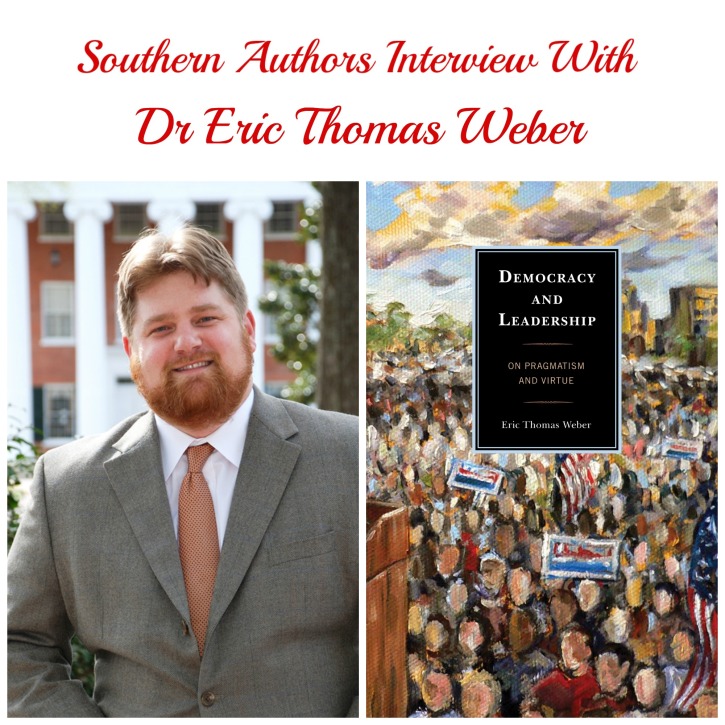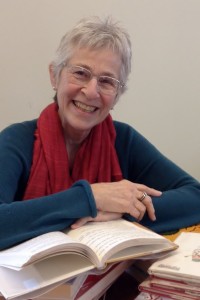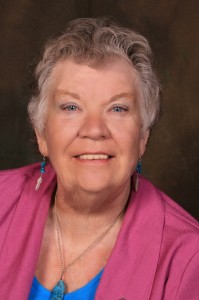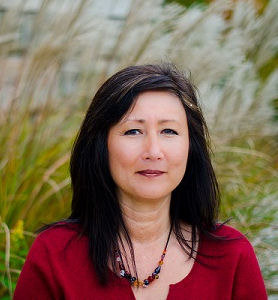
Where were you born?
I was born in Washington, D.C., at the Walter Reed Army Medical Center, where my father was serving. What brought my family to Mississippi was an exciting job in the department of Public Policy Leadership at the University of Mississippi.
When did you start writing and what inspired you to start?
For me, writing means mainly two things, but they’re connected on a spectrum. I practiced academic writing from high school through my doctoral studies in Philosophy. My writing for audiences beyond the academy really was motivated by my philosophical hero, John Dewey. Dewey was an able technical thinker, but he wrote a great deal for outlets like Harper’s, the Nation, Scribner’s Magazine, etc. He was the quintessential public philosopher and public intellectual of his time. The motivations for his writings beyond the academy were rooted in his democratic philosophy. I try to follow in his footsteps, which is why I began writing for newspapers and online publications. My public writing really got some speed in 2010.
When did you first consider yourself a writer?
I suppose I was an aspiring writer when I started work here in Oxford in 2007. My career is certainly the life of the university professor, but quite often that can mean thinking of yourself as a writer. I really thought of myself as a budding writer when I began writing articles for newspapers and pitching books to literary agents. In academia, you generally don’t go through an agent, submitting your work directly to publishers instead. So, when I began planning books for wider audiences, ones for which I would likely need an agent, I suppose that’s when I really started thinking of my future as a writer. I would say I’m still only in one of the early stages. My first books were primarily contributions to scholarly debates, though I’ve always worked to show how theory connects to real life and practical application. My first two books helped to prepare me for the next steps of my writing. My third and most recent book, Democracy and Leadership has attracted a good bit of attention beyond the academy. That’s starting to make me feel like “a writer.”
Do you see writing as a career?
If you use an expansive sense of the term “career,” sure. If one means something like the idea of writing as one’s primary or sole source of income, I would need to qualify my answer. If you think about it, getting tenure as a professor requires writings, in most fields anyway. So part of what can make or break your career is your scholarly writing. The life of the professor involves a lot of other kinds of work, much of which is teaching. All that said, in the big picture, yes, I do see writing as my career. After all, I teach courses on my area of specialty, on subjects connected to my research. So I teach about things that I write about. It’s an ideal arrangement for writing and for teaching, really, at least if you can get or make enough focused time to write.
What inspired you to write your first book?
My first book was based on a significant revision of my dissertation. I thought that the dissertation had something important to contribute to debates in my field, so I reworked it for a few years. It’s called Rawls, Dewey, and Constructivism. It sounds technical, and honestly, it is. Some of its central themes can be explained simply, though. Constructivism is a term for thinking about how people come to form concepts, to have ideas and knowledge. When a baby thinks peekaboo is fun and startling, it’s because the child has yet to develop a basic construction about objects and the fact that when they disappear they can come back – “object permanence.” Other concepts are much more complex, built upon numerous other constructions and concepts. The examples of greatest interest to me included what it means to be a “person” and also what “justice” means.
A great thinker on the subject, John Rawls, wrote an influential set of works on the topic, and he seemed to be on the fence about how to think about the origin of concepts like justice. The great educational and political philosopher John Dewey had a great deal to say about how people construct concepts. My first book connects the insights of these two thinkers to show a way to address the problems I saw in Rawls’s hesitations about constructivism.
Though these are technical and abstract issues, I was curious about them. There are so many things we don’t know about human experience. Studying constructivism seemed to push the envelope as far as I could push it in order to understand human experience and both how and why people’s understandings of the world can come out so differently. I wanted to arrive at my own understanding of the basics of human nature and psychology, to reach and feel for the limits and origins of what we can know. Studying constructivism has helped me situate my thinking in the history of philosophy, which has profoundly influenced all of my work since.
Can you tell us about your challenges in getting your first book published?
My experience may be unhelpful for some writers, because my first book was published by an academic press. Some of my challenges were the same for any first author. They say it’s hardest to land your first book. That’s absolutely right. My first publisher wanted to see the proposal for my second book and issued me a contract for it. So, it was clearly the first book that was hard to land.
For the first book, I made a list of 30 presses and submitted proposals to 10 at a time. In academia, publishers will generally tell you that it’s ok to submit your proposal simultaneously to other presses. If and when they invite you to submit the full manuscript, at that point many don’t want you sending it to other presses simultaneously.
I went down my list. The main challenge was to stay positive even when I heard no from many great places. A mentor and friend said, “You only need one.” He was right. In the end I had two publishers express serious interest and I went with the one I preferred.
How many books have you written? Which is your favorite?
I’ve written three books, or four if you count a manuscript that’s under review. Fingers crossed. My favorite book so far is Democracy and Leadership. It’s certainly generated the largest response, by which I mean invitations to travel and give talks about the book. That’s been exciting. People, so far mostly at colleges and universities, but not only, have wanted to hear about my theory of democratic leadership, something which people still today think is a contradiction. It was a very difficult book to write in a number of ways, but the enormous amount of work seems to have paid off.
Talk about your most recent book. How did you come up with the title?
Democracy and Leadership: On Pragmatism and Virtue presents a theory of leadership drawing on insights from Plato’s Republic, while abandoning his authoritarianism in favor of John Dewey’s democratic thought. The book continues the democratic turn for the study of leadership beyond the incorporation of democratic values into old-fashioned views about leading. The completed democratic turn leaves behind the traditional focus on a class of special people. Instead, leadership is understood as a process of judicious yet courageous guidance, infused with democratic values and open to all people.
The title for the book pays homage to John Dewey. One of Dewey’s most influential works was titled Democracy and Education (scholarly edition, free online edition). He showed how invaluable each one was for the other, as well as how we needed to rethink education, letting go of outmoded views about it. My project took a similar approach, but for thinking about leadership. The aim is to let go of outdated ways of thinking about leadership. At the same time, one of the great philosophers, Plato, had so much of value to offer on the subject. The key was to follow Dewey’s guidance in updating Plato’s ideas about the virtues of the good society for the sake of democratic leadership.
How is this title published? (Self-Published or through a publisher)
It was published by Lexington Books, a division of the Rowman and Littlefield Publishing Group, in November of 2013. Its first release is marketed especially to scholars and academic libraries, which typically have significant book budgets. The press will come out with a more affordable paperback edition within roughly a year.
What drove your decision to publish this way?
Lexington Books has put out a lot of books that I admire. The do good work. They have huge distribution around the world. And, they were a second press to believe in my work, which I thought would be of value for my writing trajectory. It also didn’t hurt that I liked the design options for their books.
Is there a message in your book that you want readers to grasp?
Yes. It’s a mistake to think that leadership is just for a select group of people. That’s a way of denying one’s own responsibility to speak up, participate, and help direct public efforts. The better way to think of leadership is to see it as a process of guidance, done best when following certain key virtues outlined in the book.
Are experiences based on someone you know, or events in your own life?
It’s a work of non-fiction, but yes, I certainly draw on my own life experiences. Even more so, I drew on as much research as I could get my hands on and read. I found myself surprised over and over by what I found when checking my assumptions or looking for examples of things I was talking about. That’s part of the point of research. For me, it’s always a lot of fun – looking for information about things I’m interested in and care about.
What was the hardest part of writing your book?
This time around, I struggled with the introduction. I had written an introduction and then felt dissatisfied with it in a big way. It needed a lot of revisions for flow, removing repetition, etc. I’m one of those writers who needs to start somewhere, however rough, and then sometimes hack it to pieces. When I realize that I disagree with something I wrote, I learn a lot in the process of figuring out why. When I can answer that question well, it’s straightforward to figure out what I should have said.
Did you learn anything from writing your book and what was it?
Absolutely. The main thing I learned is that sometimes to take the time you need to focus on a big project, it’s ok to put other things on hold – even if some people get mad about it. I tend to juggle a ton of things and want to keep them all running smoothly. In this case, I had to be ok with either letting some things drop or with delegating. I also had to push myself hard to say no more often, or to see whether someone else could help me. It was a big effort for me to change that behavior, but it also gave me the time to focus and get the project done.
If you had to do it all over again, would you change anything in your latest book?
It was so much work. The idea of having to do it over again sounds like having lost all that work. I’d rather not imagine that scenario. Seriously. It’s too upsetting for a hypothetical…
Do you have a new book coming out soon?
I am presently working on 5 book projects, with one main book on the front burner. None of these are scheduled for release yet. They’re not presently under contract. I’m taking my time on these books and hope to have one of them come out before the end of 2015 or not too long after. There’s a chance that one of them – the one that’s written and finished – might come out in 2014. We’ll see.
What is your favorite social media outlet for marketing/promotions?
I use a combination of LinkedIn, Twitter, and a Facebook author page. I can’t say that I have a favorite. They all reach a different audience, yet you can link your accounts in some ways. So far, I’ve had the smallest draw to my Facebook author page, but probably the deepest impact there. Twitter has tremendous power to spread messages, but I’ve not yet seen it take off for me. LinkedIn, believe it or not, has yielded the most connections for me, but I suspect that the connections I’ve made there have not been as deep, in general.
Click here to continue reading






 I write about the Deep South. My roots dig into the piney woods that I rode through on horseback and into the sweat-soaked hardscrabble farms. My slice of life tales chronicle a time past that is poignant, vivid and sometimes brutal. My readers stare into the eyes of people struggling with living, grasping for understanding, doing the best they know how.
I write about the Deep South. My roots dig into the piney woods that I rode through on horseback and into the sweat-soaked hardscrabble farms. My slice of life tales chronicle a time past that is poignant, vivid and sometimes brutal. My readers stare into the eyes of people struggling with living, grasping for understanding, doing the best they know how. Since 1987 I’ve lived other people’s lives more than my own. Sometimes I’m not sure if I’m one of the characters in my books or myself. As myself I live and work in the Arkansas Ozarks. I have a husband, two children, three grandchildren and two great grandchildren. My greatest accomplishment. Next comes the 20-odd books I’ve managed to have published.
Since 1987 I’ve lived other people’s lives more than my own. Sometimes I’m not sure if I’m one of the characters in my books or myself. As myself I live and work in the Arkansas Ozarks. I have a husband, two children, three grandchildren and two great grandchildren. My greatest accomplishment. Next comes the 20-odd books I’ve managed to have published. Brinda Berry lives in Arkansas with her family and two spunky cairn terriers. She’s terribly fond of chocolate, coffee, and books that take her away from reality. She doesn’t mind being called a geek or “crazy dog lady”. When she’s not working the day job or writing a novel, she’s guilty of surfing the internet for no good reason.
Brinda Berry lives in Arkansas with her family and two spunky cairn terriers. She’s terribly fond of chocolate, coffee, and books that take her away from reality. She doesn’t mind being called a geek or “crazy dog lady”. When she’s not working the day job or writing a novel, she’s guilty of surfing the internet for no good reason.